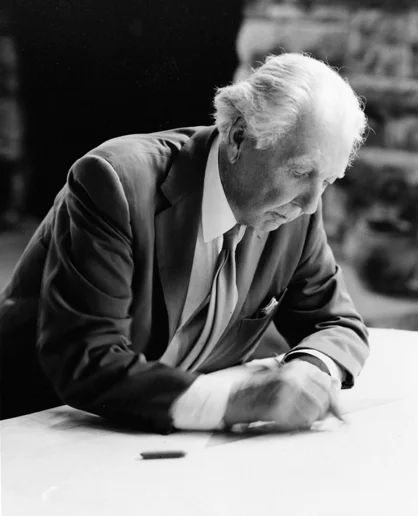Matt Groening’s Impact on Mainstream Media
Graz Carman
Writer’s Workshop 7/8 F
Have you ever been watching one of your favorite, albeit slightly inappropriate, cartoons and wondered, ‘How and why do these shows even exist?’ Yeah, me neither. But in case you have, look no further than Matt Groening, a cartoonist, writer, animator, producer, and voice actor. Matt Groening is a role model change maker who developed two shows that helped introduce cartoons geared towards adults to mainstream media, transforming it for the better and giving way to many other great shows.
Matt Groening was born on February 15th, 1954 in Portland, Oregon. He was born the middle of five children, having two older sisters and a younger brother and sister. He went to Evergreen State College in Olympia Washington and was editor of the school’s newspaper as well as an avid cartoonist. At the time, Groening hadn’t believed that he would be able to make any sort of living making cartoons. This changed when he met a fellow Evergreen student and cartoonist, Lynda Barry. She was able to make a living selling her cartoons to alternative papers and that inspired Groening to try to do the same. In 1973, he moved to Los Angeles to work as a writer. He spent a few years working part time jobs before his comic strip, “Life in Hell,” was bought by LA Weekly in 1980. The comics soon became very well known and Groening gained a large following.
Due to the success of “Life In Hell,” Groening was contacted by James L. Brooks, who asked if he would be interested in creating a series of animated shorts to be featured on The Tracey Ullman Show. This is how the wonderfully dysfunctional Simpsons family was born. The Simpsons family premiered on the show on April 19, 1987. Ullman's show was soon canceled, but the Simpsons were popular enough to earn their own spin-off series, which premiered in 1989. The Simpsons has since been the longest running comedy in America.
The Simpsons was one of the first “adult cartoons” to gain popularity and a large following. Adult animation on television has been around since as early as 1972, but it wasn’t truly popularized until The Simpsons. The Simpsons quickly gained millions of followers and was loved and enjoyed by many, making it a household name. However, with that popularity, came a good amount of controversy as well. Several US public schools banned The Simpsons merchandise and clothing due to many parents and conservatives believing that Bart Simpson is a bad role model. Nevertheless, the show continued running and people kept watching it. Many believe the show peaked around Season 6, and then began to decline in quality from there. But even though The Simpsons has seemed to overstay its welcome at this point, the mark it’s left on mainstream media won’t be fading any time soon.
The popularity of Groening’s creation inspired other shows. After seeing its popularity on Fox, many other networks attempted to create their own “adult cartoons,” but none of them gained as much success. King of the Hill and South Park, are two such shows, one of which lasted 13 years while the other is still running, and gained millions of followers. With the creation of these shows, “Adult cartoons” became more mainstream and even more shows were created following them, like Family Guy and Futurama.
Part of the appeal is that the nature of these shows allows for them to cover topics that would be more difficult to cover in live-action television. They’re devoid of the physical limitations of real people and it’s easy to suspend your disbelief because there are practically an infinite amount of things that can happen in these universes. Groening did a wonderful job on seizing and capitalizing on these opportunities, creating an audience for a genre that many didn’t even realize could exist.
At the end of the day, Matt Groening’s impact on mainstream media is indisputable. It has been vital in the creation of some of the most beloved shows to this day, without a doubt, making him a role model change maker and key in the transformation of what is considered “mainstream.”
Bibliography
“History of The Simpsons.” Wikipedia. 2017. Wikipedia. 24 December <https://en.wikipedia.org/wiki/History_of_The_Simpsons>
Stephen Dowling. “How The Simpsons changed TV.” BBC. 17 December 2014. BBC. 1 March 2018 <http://www.bbc.com/culture/story/20141216-how-the-simpsons-changed-tv>
Peter White. “Understanding Matt Groening.” Vice. 1 August 2017. Vice. 1 March 2018 <https://www.vice.com/en_us/article/evdj9z/understanding-matt-groening>
“Matt Groening.” Biography.com. 2 April 2014. A&E Television Networks. 1 March 2018 <https://www.biography.com/people/matt-groening-9542573>
“Adult animation.” Wikipedia. 2018. Wikipedia. 27 February <https://en.wikipedia.org/wiki/Adult_animation>
John Ortved. “The Simpsons Family Values: How the Cartoon Took Over TV.” Vanity Fair. August 2007. Vanity Fair. 7 March 2018 <https://www.vanityfair.com/news/2007/08/simpsons200708>
“The Decline In The Quality Of ‘Simpsons’ Episodes, Charted.” Digg. 20 July 2017. Digg. 7 March 2018 <http://digg.com/2017/charting-the-simpsons-decline>





